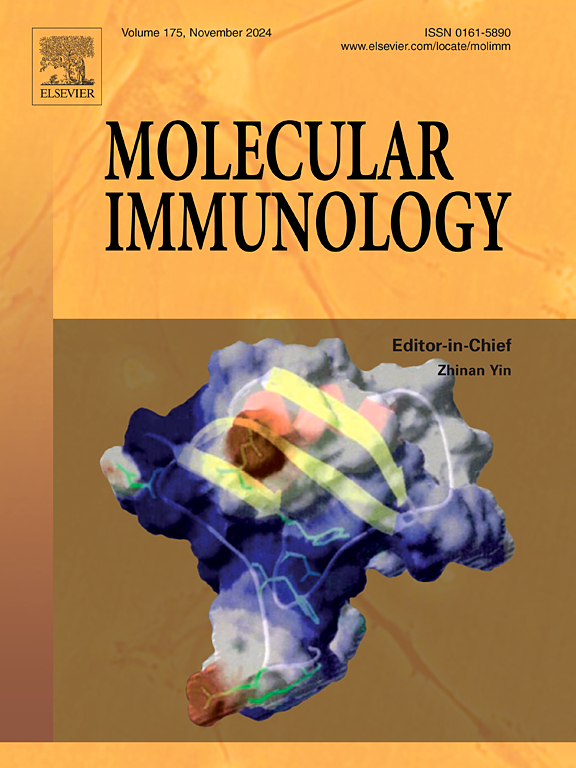开发结核病疫苗的目标和战略
IF 3.2
3区 医学
Q2 BIOCHEMISTRY & MOLECULAR BIOLOGY
引用次数: 0
摘要
由结核分枝杆菌(Mtb)引起的结核病(TB)仍然是全球的一个主要健康问题。耐多药结核病和广泛耐药结核病的出现已成为结核病控制规划的严重威胁。目前,卡介苗(Bacille Calmette-Guerin, BCG)可以有效地保护儿童免受疾病传播,但在成人中其效果会减弱。尽管卡介苗和加速的结核病疫苗研究存在种种局限性,但卡介苗仍然是唯一获得批准的结核病疫苗。抗结核药物治疗在对抗这种疾病方面取得了成功,但它有各种副作用,需要延长药物治疗期。因此,疫苗接种是能够超越上述局限性的最佳前景。几种候选疫苗正在筹备中,希望有一种潜在的候选疫苗可以增强卡介苗或取代卡介苗。这篇综述讨论了结核疫苗开发的不同途径。它总结了疫苗开发及其临床前和临床试验中的所有挑战和限制。此外,还讨论了DNA疫苗及其接种技术。此外,免疫信息学方法和基于纳米材料的疫苗递送与实际和生产的终点也进行了讨论。最后,提出了进一步研究的前景,以期取得积极成果。本文章由计算机程序翻译,如有差异,请以英文原文为准。
Goals and strategies in vaccine development against tuberculosis
Tuberculosis (TB), caused by Mycobacterium tuberculosis (Mtb), continues to be a major health problem globally. The emergence of multi-drug-resistant TB and extensively drug-resistant TB has become a severe threat to TB control programs. Currently, the Bacille Calmette-Guerin (BCG) vaccine protects a child from disease dissemination efficiently, but its efficiency wanes in adults. Despite all the limitations of BCG and accelerated TB vaccine research, BCG remains the only approved vaccine available for TB. Anti-TB drug treatment has been successful in combating the disease, but it has various side effects and requires an extended drug treatment period. So, vaccination is the finest outlook that can surpass the above-mentioned limitations. Several vaccine candidates are in the pipeline, and the hope for a potential candidate to either boost the BCG vaccine or replace BCG is underway. This review discusses different approaches to TB vaccine development. It summarizes all the challenges and limitations in vaccine development, and its preclinical and clinical trials. Additionally, DNA vaccines and their vaccination techniques are also discussed. Furthermore, the immunoinformatics approach and nanomaterial-based vaccine delivery with practical and productive endpoints are also discussed. Lastly, the potential prospects are also suggested for further studies, which would help bring positive outcomes.
求助全文
通过发布文献求助,成功后即可免费获取论文全文。
去求助
来源期刊

Molecular immunology
医学-免疫学
CiteScore
6.90
自引率
2.80%
发文量
324
审稿时长
50 days
期刊介绍:
Molecular Immunology publishes original articles, reviews and commentaries on all areas of immunology, with a particular focus on description of cellular, biochemical or genetic mechanisms underlying immunological phenomena. Studies on all model organisms, from invertebrates to humans, are suitable. Examples include, but are not restricted to:
Infection, autoimmunity, transplantation, immunodeficiencies, inflammation and tumor immunology
Mechanisms of induction, regulation and termination of innate and adaptive immunity
Intercellular communication, cooperation and regulation
Intracellular mechanisms of immunity (endocytosis, protein trafficking, pathogen recognition, antigen presentation, etc)
Mechanisms of action of the cells and molecules of the immune system
Structural analysis
Development of the immune system
Comparative immunology and evolution of the immune system
"Omics" studies and bioinformatics
Vaccines, biotechnology and therapeutic manipulation of the immune system (therapeutic antibodies, cytokines, cellular therapies, etc)
Technical developments.
 求助内容:
求助内容: 应助结果提醒方式:
应助结果提醒方式:


